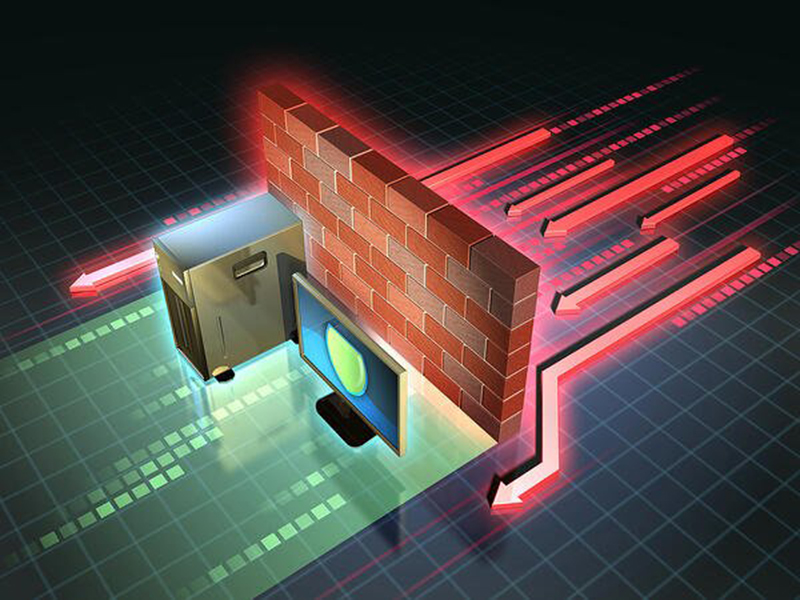What are the features and improvements of traditional firewalls and next-generation firewalls?
Firewalls primarily provide protection against cyberattacks and malicious threats that invade your network and steal your data. While this might sound like a negative scene from a movie, you’d be surprised how often organizations get hacked and how prevalent data theft and cyber breaches are. There is a hack every 39 seconds, and the average cost of a data breach is estimated to be over $150 million.
While most businesses use firewalls to secure their networks, with hackers so advanced these days, that may not be enough. This is exactly how next-generation firewalls were born.
What is a traditional firewall?
Think of a standard firewall as a tool designed to police traffic in and out of your network. It is a network security device that performs detailed inspection of your network traffic. It uses a few main things to perform checks – port, protocol, destination and source addresses. It may be easier to understand a traditional firewall by looking at some of its core functions:
- VPN Support – A virtual private network ensures that network entry is protected and provides network security when users traverse public or untrusted networks such as the Internet.
- Packet Filtering – Ensures that outgoing and incoming packets are thoroughly analyzed and inspected before allowing them to pass. Packets approved according to the filter rules are allowed to pass, while those that do not meet the criteria are dropped or denied access.
- Stateful Inspection – Instead of treating traffic as individual packets, it is defined as a flow. Certain rules are set for traffic, and depending on the behavior of the traffic, certain decisions can be made to protect the network.
These features were once thought to provide comprehensive protection. But not anymore.
What is an NGFW?
Next-generation firewalls use many of the standard features of traditional firewalls, but they are different. NGFW provides a wider layer of security, which makes this solution more suitable for most enterprises. Some of the core capabilities of next-generation firewalls include:
- Advanced Technology to Address New Era Security Threats
- Integrated intrusion detection and prevention
- Threat intelligence sources
- Upgrade path
- Ability to detect and block dangerous applications with application awareness
- Status checking and other core competencies
But what do these mean for your business?
Additional advantage
Next-generation firewalls go beyond the static checks that standard firewalls follow. NGFW provides application-level control and security. Below are some of the key additional benefits of NGFW.
Application awareness
Application awareness allows businesses and organizations to set certain rules for each application, rather than relying solely on IP and port numbers. An important function of next-generation firewalls is the ability to define each application. Traditional firewalls rely entirely on port number definitions. However, the downside is that they can be easily used by anyone. Utilizing App-ID to provide reliable identification of traffic flows and capture potential risks is critical.
Threat intelligence
All in all, next-generation firewalls are equipped with everything you need to provide advanced threat intelligence to keep your business safe. Some key advantages are:
- Single console access
- Multiple layers of protection
- Simplified Infrastructure
- Enhanced use of network speed
- With antivirus, ransomware and spam protection
- Ability to use role-based access control
Intrusion prevention system
Intrusion Prevention System or IPS is an extension of IDS or Intrusion Detection System. It enables the NGFW to block risks and directives once it detects blocking of malicious packets. Additionally, the system logs dangerous IP addresses and keeps a list of them for future reference, blocking any potential traffic from them to avoid any dangerous situation.
Deep packet inspection
Traditional firewalls rely on header-based packet filtering. Next-generation firewalls use deep packet inspection, which allows detailed inspection of the contents of packets. It thoroughly vets and inspects sources and has the ability to analyze the complete content of each packet. This provides businesses with additional security and reliability.
If you’re looking for a reliable system to protect your organization from the negative impacts of data breaches and cyber threats, you can rely on next-generation firewalls.
Want to know more, please click here: Cisco Firewalls, Huawei Firewalls, Fortinet Firewalls, Juniper Security
Read More:
Fortinet Firewall Vs Palo Alto Firewall! (Quick Comparison)
Importance of firewalls: the benefits of firewalls
14 View and Diagnose Commands of Fortinet Fortigate Firewalls Configuration
7 Basic Commands of Fortinet Fortigate Firewalls Configuration
Reference:
Traditional Firewall vs NGFW. [online]




